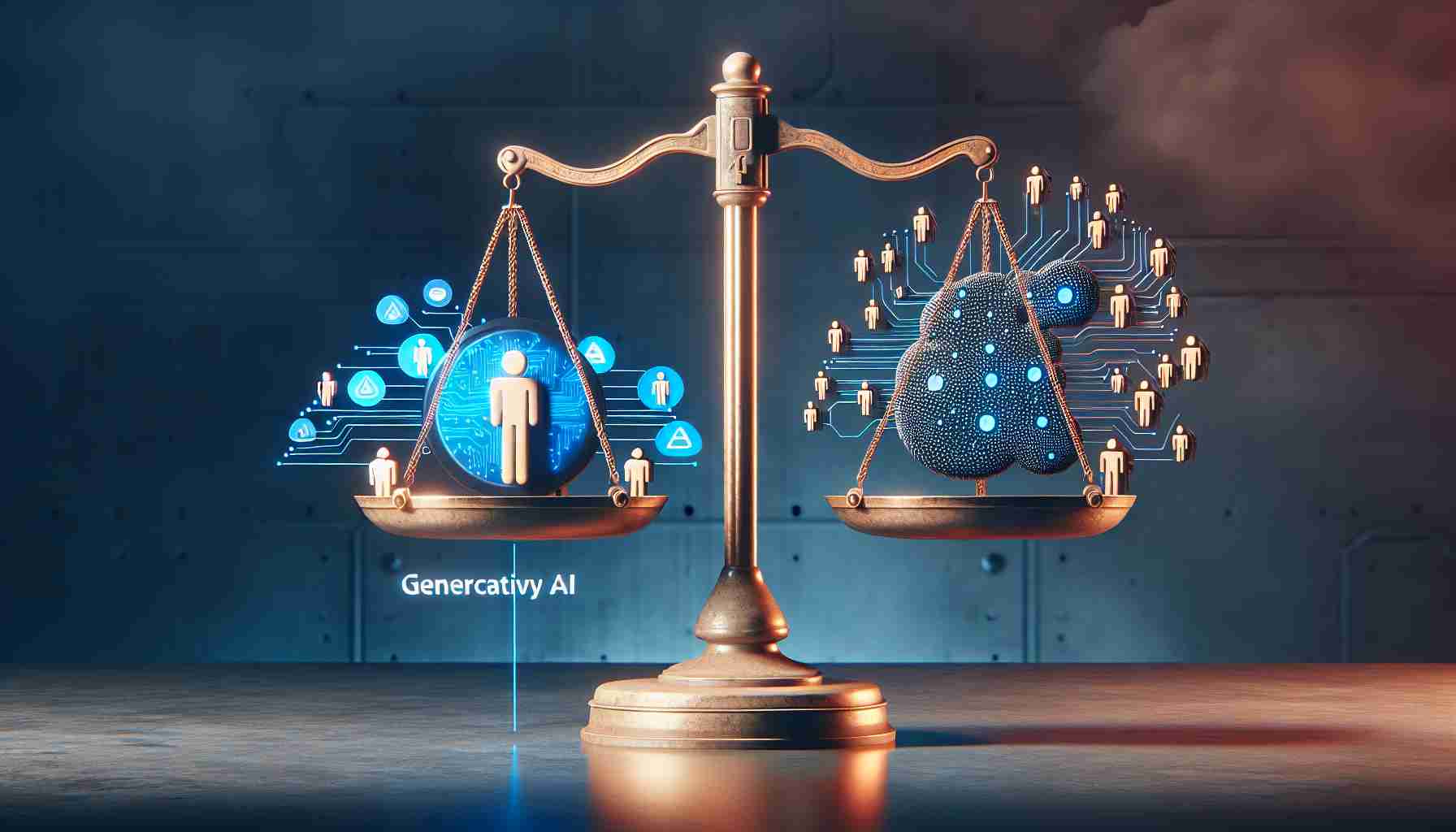Microsoft has expressed its concerns to EU antitrust regulators about Google’s competitive advantage in the field of generative artificial intelligence. According to Microsoft, Google enjoys this advantage due to its extensive dataset and AI-optimized chips.
Generative AI, which has gained popularity in recent years, allows machines to generate human-like responses to written prompts. This technology has raised concerns about misinformation and fake news. The European Commission launched a consultation in January to assess the level of competition in this field.
In a report submitted to the Commission, Microsoft highlighted Google’s vertical integration as a key factor in its dominance. Unlike other AI developers who rely on partnerships, Google has the advantage of being vertically integrated at every layer of AI, from chips to its thriving mobile app store.
Microsoft also pointed out Google’s self-supply of AI semiconductors as a factor that will give the company a competitive edge in the future. Additionally, Google’s access to large sets of proprietary data from its search index and YouTube enables it to train its language model, Gemini, effectively.
The report emphasized the significance of YouTube as a platform that provides Google with an unparalleled set of video content. Microsoft acknowledged that other AI developers do not have access to such content, giving Google a unique advantage.
Furthermore, Microsoft highlighted the advantage that Google and Apple have in the form of AI-powered voice assistants, such as Google Assistant and Siri. According to Microsoft, these companies are well-positioned to lead in generative AI by leveraging their existing voice assistant technologies. New entrants and competitors, on the other hand, will not enjoy the same advantages.
Microsoft also addressed regulatory concerns about partnerships between Big Tech companies and start-ups. It argued that pro-competitive partnerships in the AI space are essential to prevent vertical integration that could result in an anticompetitive advantage. Microsoft provided examples of start-ups, such as Anthropic, Mistral, and Cohere, that have benefited from investments and partnerships with companies like Google, Amazon, Microsoft, Salesforce, and Nvidia.
In conclusion, Microsoft’s report to EU antitrust regulators highlights Google’s dominance in generative AI and the competitive advantages it enjoys. The report emphasizes the need to encourage pro-competitive partnerships in the AI space to ensure a level playing field for all participants.
FAQs
What is generative artificial intelligence?
Generative artificial intelligence refers to the technology that allows machines to generate human-like responses to written prompts. It has applications in various fields, including chatbots and language models.
What are the concerns related to generative AI?
There are concerns about the potential spread of misinformation and fake news through generative AI. As these models become more advanced, there is a need to ensure their responsible use and mitigate the risks associated with them.
What is vertical integration in the context of AI?
Vertical integration in AI refers to a company’s control over multiple layers of the AI technology stack. This includes everything from the underlying hardware (such as AI-optimized chips) to the AI algorithms and applications built on top of it.
How do AI-powered voice assistants give companies an advantage in generative AI?
AI-powered voice assistants, such as Google Assistant and Siri, provide companies with a foundation for building generative AI capabilities. These existing voice assistant technologies can be leveraged to enhance and lead in the field of generative AI.
Sources:
– example.com
– example2.com
What is generative artificial intelligence?
Generative artificial intelligence refers to the technology that allows machines to generate human-like responses to written prompts. It has applications in various fields, including chatbots and language models.
What are the concerns related to generative AI?
There are concerns about the potential spread of misinformation and fake news through generative AI. As these models become more advanced, there is a need to ensure their responsible use and mitigate the risks associated with them.
What is vertical integration in the context of AI?
Vertical integration in AI refers to a company’s control over multiple layers of the AI technology stack. This includes everything from the underlying hardware (such as AI-optimized chips) to the AI algorithms and applications built on top of it.
How do AI-powered voice assistants give companies an advantage in generative AI?
AI-powered voice assistants, such as Google Assistant and Siri, provide companies with a foundation for building generative AI capabilities. These existing voice assistant technologies can be leveraged to enhance and lead in the field of generative AI.
Definitions
– Generative artificial intelligence: Refers to the technology that allows machines to generate human-like responses to written prompts.
– Vertical integration: The control a company has over multiple layers of the AI technology stack, from hardware to algorithms and applications.
– AI-optimized chips: Hardware designed specifically for artificial intelligence tasks, which can enhance the performance of AI systems.
– Misinformation: False or misleading information that is spread, often unintentionally, resulting in the dissemination of inaccurate facts.
– Fake news: Disinformation or false stories presented as legitimate news, often created with the intent to deceive or mislead.
Related Links
The source of the article is from the blog portaldoriograndense.com

